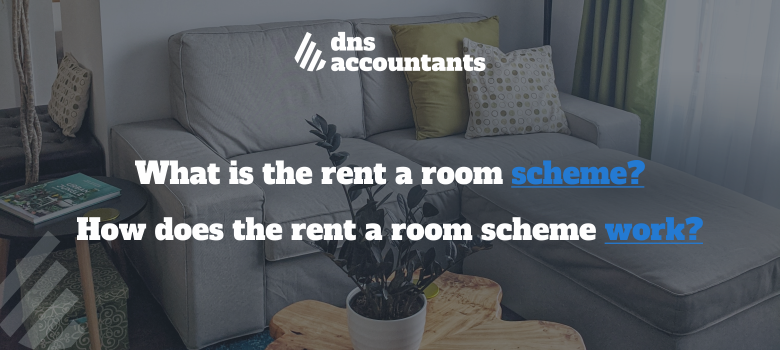
Never keep all your eggs in the same basket. So, having an additional source of income by renting a room is a financially sound decision. But before you rent out a room in your home, it is advisable to have an in-depth understanding of the tax system, like how it works, the tax relief schemes and paperwork involved in it, and other legalities involved.
A person owning a furnished accommodation or a tenant (eligible to rent a room as per the legal rent agreement) could rent a room and start having a rental income. And the good news is that you could be eligible for tax relief if you opt for the ‘Rent-a-Room Scheme.’
What is the ‘Rent-a-Room Scheme’?
As per the HMRC department in the UK, the owner-occupiers and tenants can earn tax-free rental income up to £7,500 annually by renting out furnished accommodation in their home, as part of the Rent-a-Room Scheme.
However, this income reduces to half, i.e., £3,750, if the same property is rented out by the joint owner. Notably, the limit remains unchanged, even if the accommodation is on rent for less than a year.
How to get maximum benefits?
If you earn less than £7,500 annually, you will automatically get the tax exemption, even if you are not required to do the paperwork; just opt for the scheme and claim your allowance. But it is always advisable to keep records of your income and expenses for self assessment.
In case, annual rental income is more than £7,500, you need to declare your yearly earnings and complete a Self Assessment tax return. You are given a choice of whether to opt in the Rent-a-Room Scheme or not.
By opting into the scheme, the benefits remain the same, that you will receive tax-free rental income up to £7,500 annually. But if you opt out of the scheme, you pay tax as per actual profits.
This is calculated by deducting maintenance expenses, landlord insurance and broker fees from the gross annual rental income.
Keep a record of your income and expenses on the property pages of your tax return. Usually, those who are running rental businesses choose to opt out of the scheme.
How to choose an option?
If you find it difficult to decide whether to opt in or out of the scheme, apply simple mathematics. You need to calculate total expenses around renting an accommodation; opt out of the scheme if it is more than the exemption amount (£7,500).
While filling your Self Assessment tax return, declare all your income and expenses on the property pages. To ensure better understanding of the pros and cons of both choices, speak to some experienced tax professionals.
Also, do some ground research personally.
The choice to opt in or out of the scheme is not fixed; it’s flexible. You can choose your preferred option every year by 31st January before the new tax year starts.
All you need to do is to inform the HMRC whether you’re opting in or out of the scheme every year.
Am I eligible to rent a room?
Before you rent a room, you must know that you can do so as per the government’s laws. Even though you own a property, there are still some guidelines to know before you start enjoying rental income.
The most obvious one is being a legitimate owner of the property with legal documental proof. If your property is on the lease, read your agreement to know if you can rent a room in the property.
If your property is mortgaged, you need to check with your mortgage lender about the conditions involved so that you don’t end up being in trouble.
Always be sure that you are not breaking any laws or conditions before you start enjoying additional rental income.
What is the provision for short-term or Airbnb rentals in Rent-a-Room Scheme?
Rent-a-Room Scheme is applicable for short-term rentals (up to the maximum of 90 days a year) and other commercial rental activities like Airbnb or Bed & Breakfast service.
You can also use the £1,000 property allowance for tax benefits on short-term rental services. But you cannot use both tax benefit schemes at the same time.
The property allowance is helpful for people who have significant assets to let on a short-term basis or allowing parking spaces or driveways on rent. But for homeowners, Rent-a-Room Scheme is the best option to opt and save taxes.
When you can/can’t use Rent-a-Room Scheme?
You are allowed to use this scheme if you have a furnished room to let. Also, If you are letting your property for trade like running a guest house or Bed & Breakfast service or letting for short-term through Airbnb.
You are not allowed to use the Rent a Room Scheme if the room you are letting on rent is not part of your home, where you stay, if the room is not appropriately furnished, or if the property is being used commercially for running offices or business.
If your lodger works in your home on a part-time basis, like in the evening or at weekends, you can still use the scheme.
You can also use this scheme, if you let it to students for study facility, in your UK home, while you are staying out of the country.